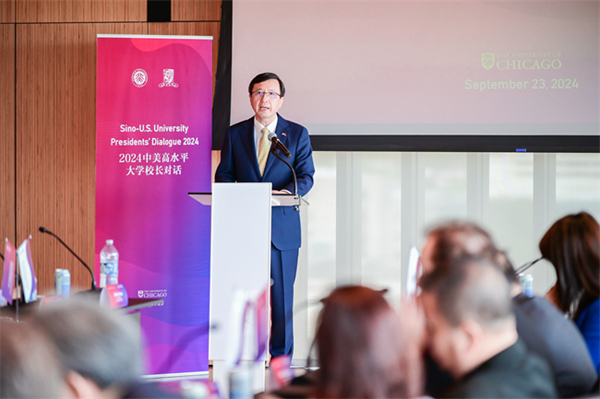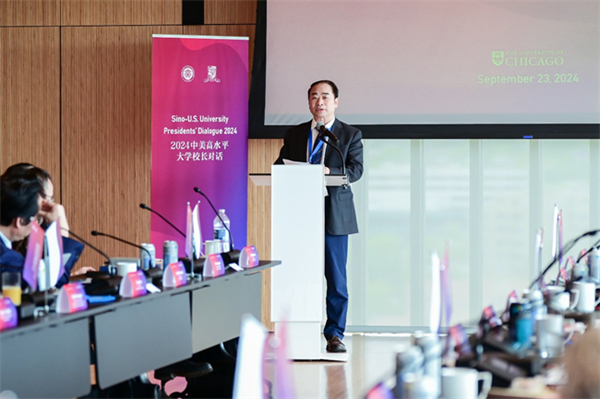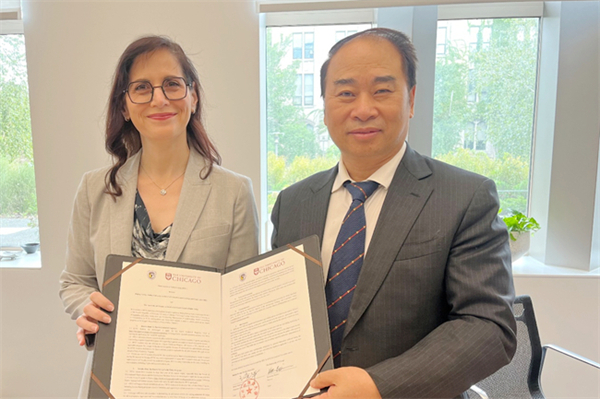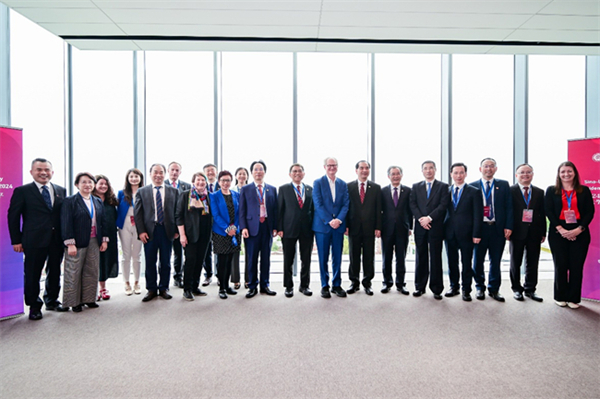- Research
- Research Centers
- Journals
- Admission
- Introduction
- Programs
- Application
- Alumni & Giving
- Alumni Club
- Giving
The Sino-US University Presidents’ Dialogue 2024, a gathering of presidents of leading Chinese and American universities under the Sino-US “10+10” program, was held in Chicago in the United States on Sept 23.

Chen Jie, China's vice-minister of education, delivers an address at the Sino-US University Presidents’ Dialogue 2024. [Photo/bfsu.edu.cn]
Addressing the event, Chen Jie, China's vice-minister of education, noted that this year marks the 45th anniversary of the establishment of China-US diplomatic relations, as well as the educational exchanges which flowed from that.
Over the past 45 years, educational cooperation has remained one of the most effective areas of people-to-people exchanges between the two sides, serving as a fundamental pillar for the stable development of bilateral relations, he said.
On the prospects for future cooperation between Chinese and American universities, Chen said the two sides should embrace innovation and creativity to lead global higher education. They also need to work together to solve post-pandemic global issues, while reinforcing mutual learning for the healthy growth of people-to-people exchanges, he added.

Wang Dinghua, secretary of the CPC BFSU committee, delivers a keynote speech at the Sino-US University Presidents’ Dialogue 2024. [Photo/bfsu.edu.cn]
Wang Dinghua, secretary of the CPC Beijing Foreign Studies University (BFSU) committee, delivered a keynote speech titled "Promoting academic cooperation between Chinese and American universities" during the afternoon session.
BFSU has long been committed to fostering Sino-US relations and academic collaboration and will continue to expand its engagement with American universities, Wang said. He also underlined BFSU’s commitment to contributing to educational exchanges and enhanced people-to-people ties between the two nations.
To advance cooperation between Chinese and US universities, Wang suggested the promotion of interactions between students and scholars, leveraging the San Francisco Vision outlined by the two nations' leaders to expand friendships among the younger generation.
He also called for increased research collaboration in higher education, and encouraged joint studies on the applications of artificial intelligence in education and the development of collaborative projects aimed at enhancing teachers’ capabilities.

Wang Dinghua (R), secretary of the CPC BFSU committee, and Katherine Baicker, provost of the University of Chicago, sign a cooperation agreement. [Photo/bfsu.edu.cn]
Following his speech, Wang and Katherine Baicker, provost of the University of Chicago, signed a cooperation agreement to deepen collaboration between the two institutions on short-term and master’s programs.

Leaders from attending higher education institutions [Photo/bfsu.edu.cn]
The attendees also include the leaders of 13 other Chinese higher education institutions: Peking University, Tsinghua University, Renmin University of China, Fudan University, Shanghai Jiao Tong University, Tongji University, Nanjing University, Zhejiang University, Huazhong University of Science and Technology, Xi'an Jiaotong University, the Chinese University of Hong Kong, the University of Macau and Shanghai International Studies University.
They were joined by their counterparts from 12 American universities, including the University of Chicago, Harvard University, Yale University and Carnegie Mellon University.